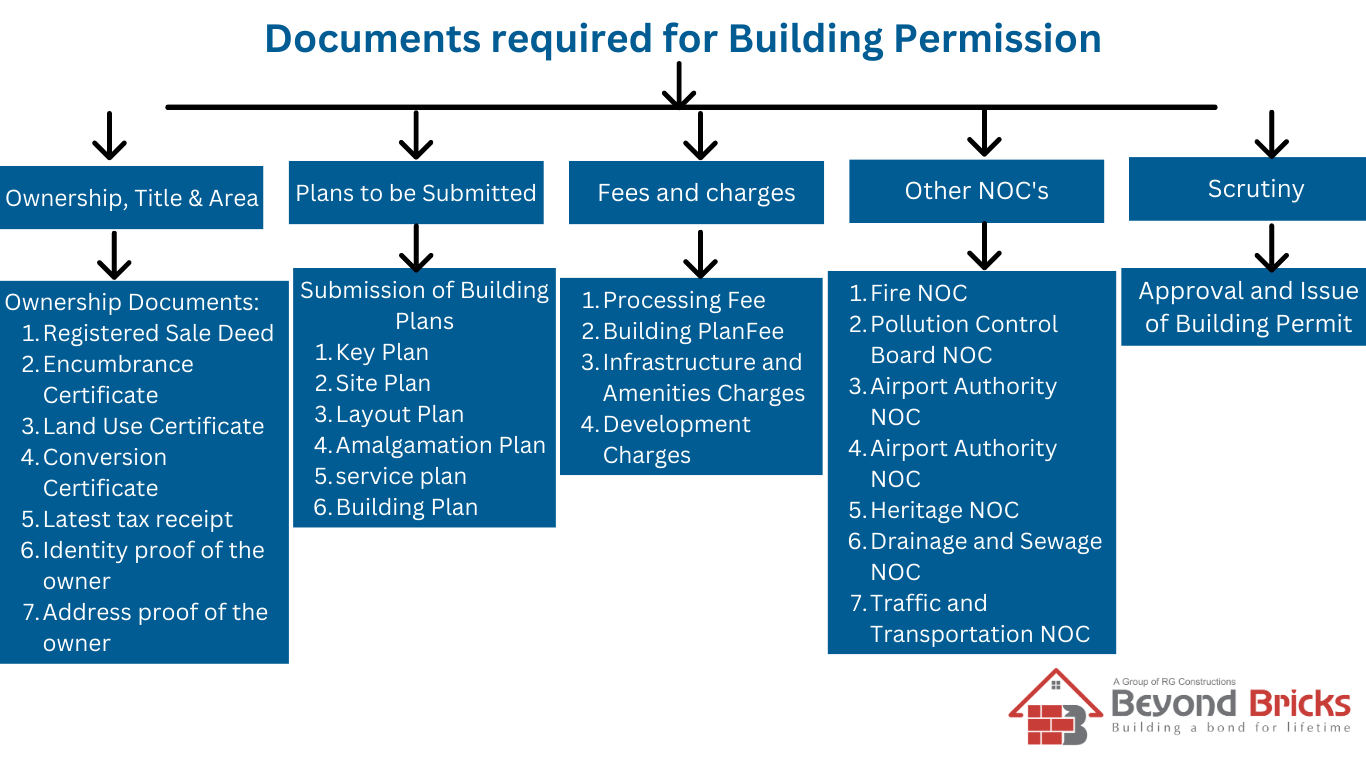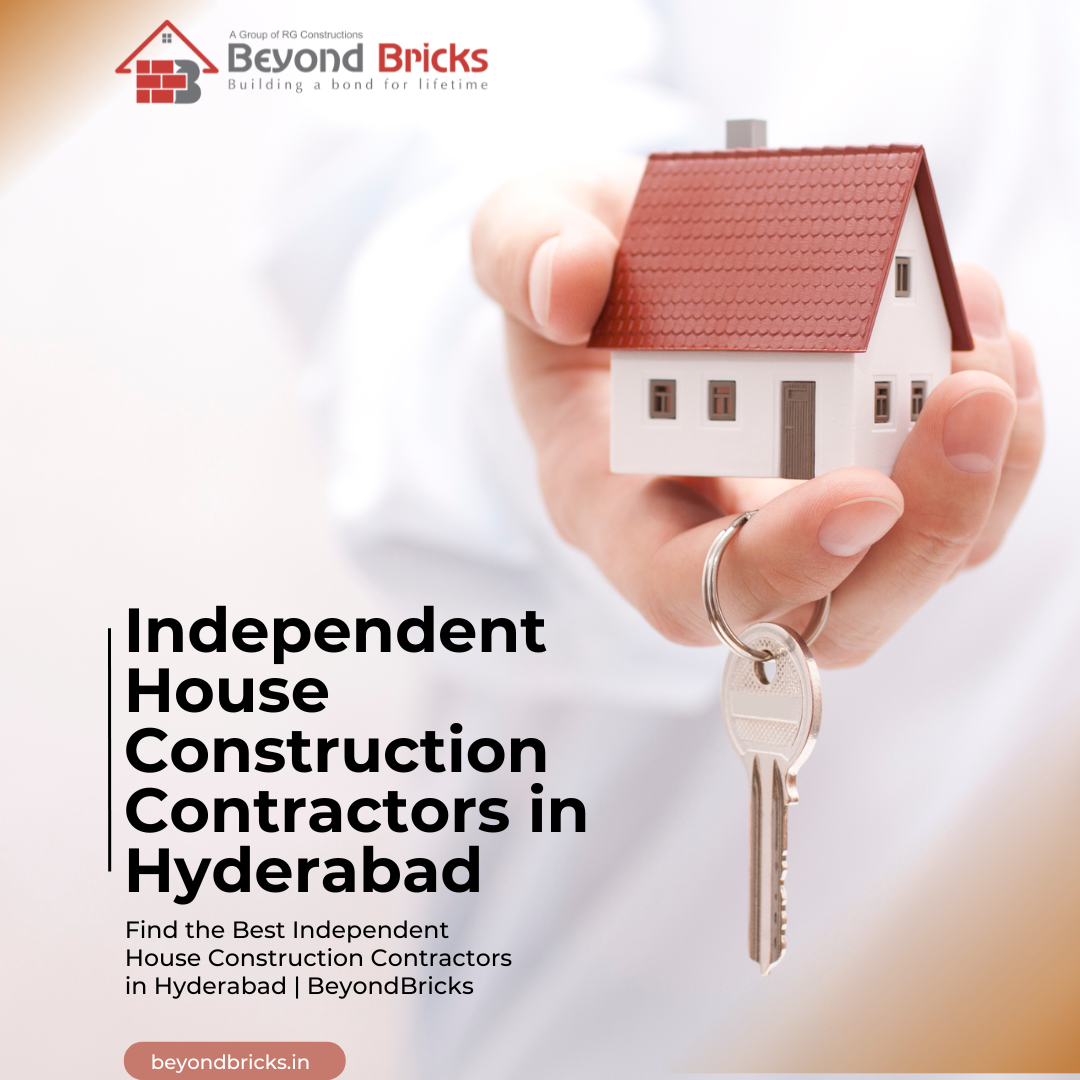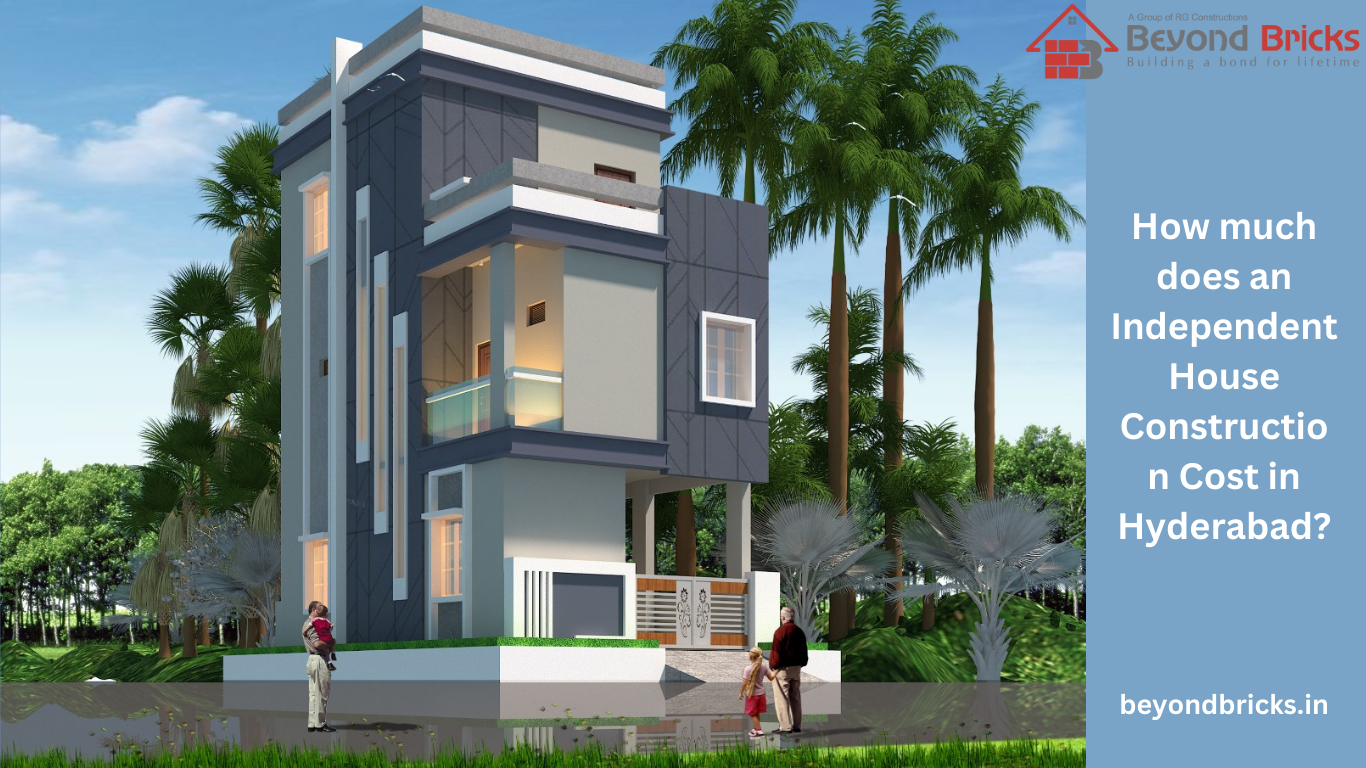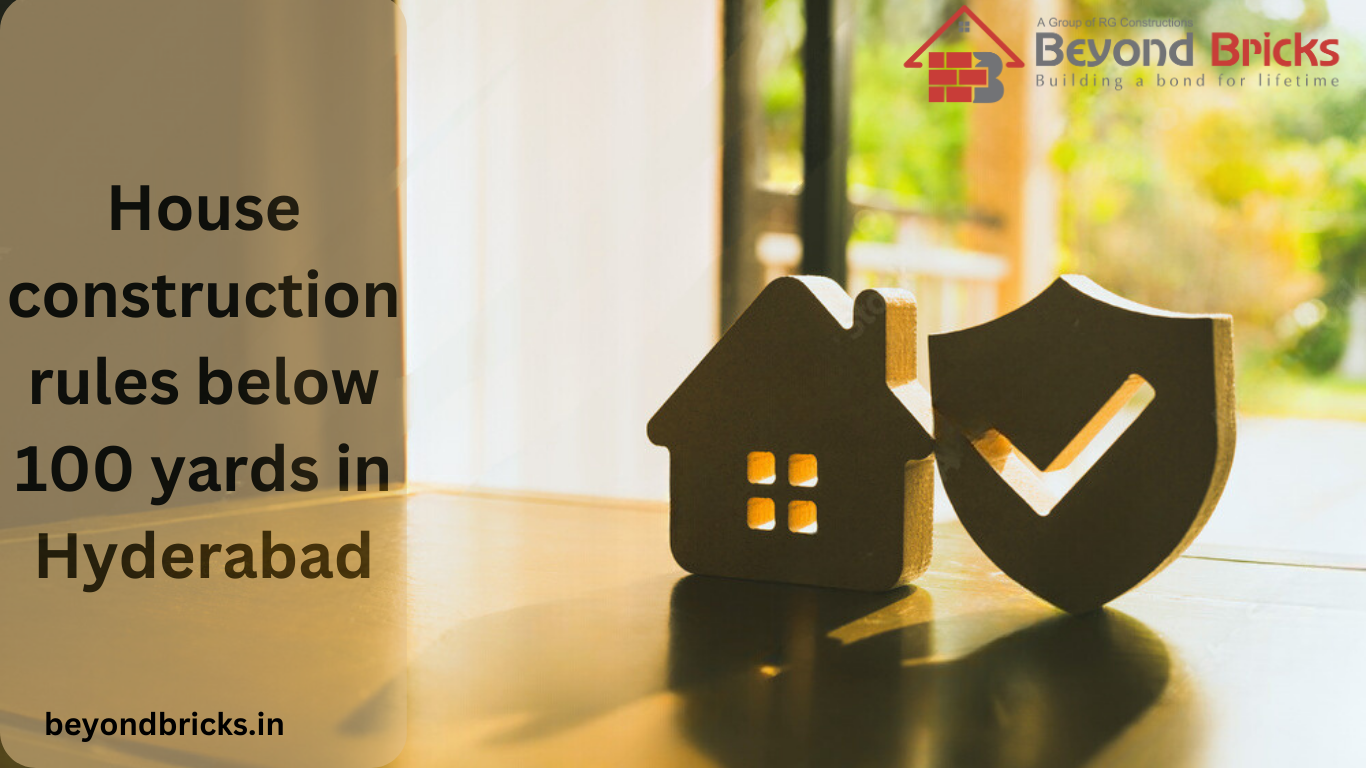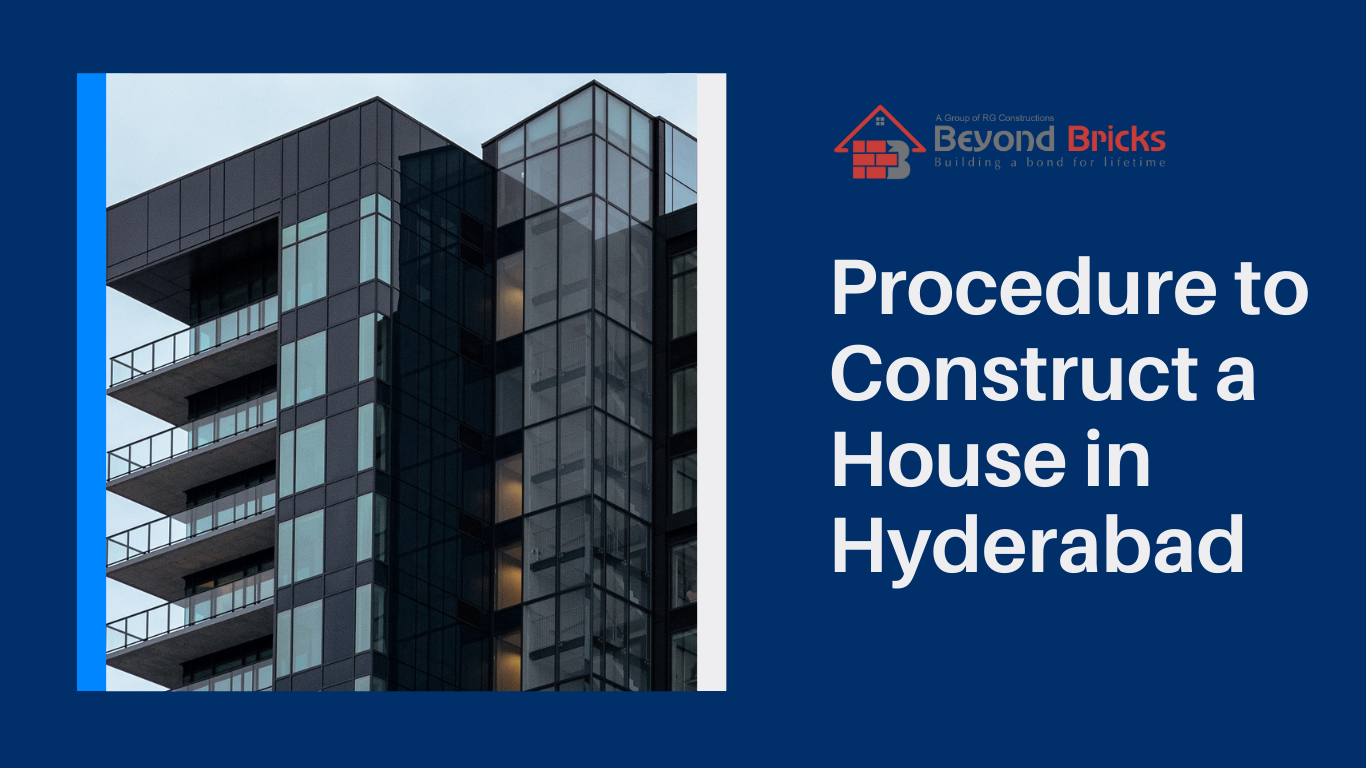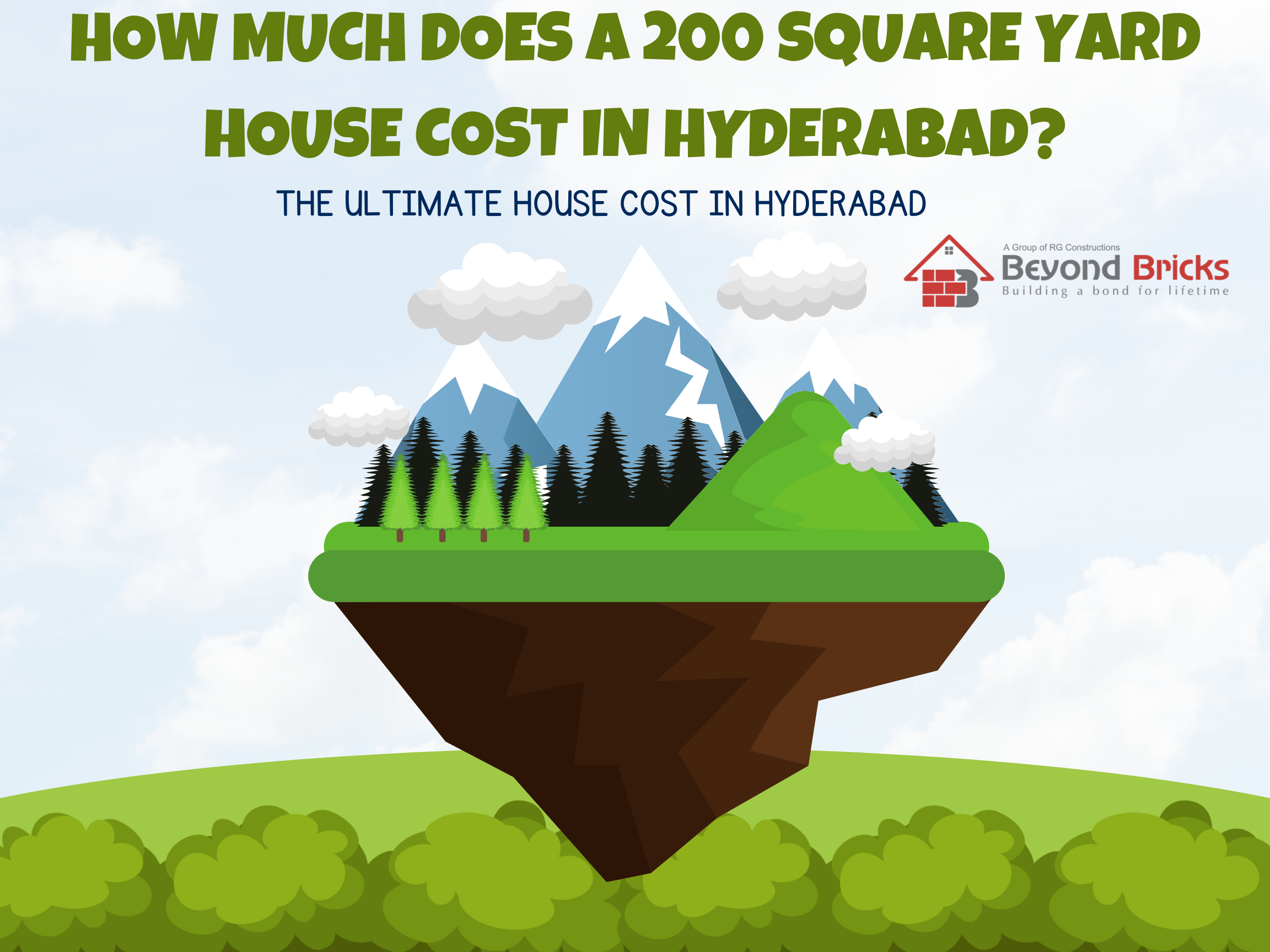Are you considering building your dream house in the vibrant city of Hyderabad? If so, you're probably wondering about the necessary permissions required for construction. The process of obtaining permission for the construction of a house in Hyderabad can be daunting, but with the right knowledge and guidance, you can navigate through it smoothly. In this comprehensive guide, we'll walk you through the step-by-step process of obtaining the necessary permits and permissions for building your dream home in Hyderabad.
Can you get Permission for House Construction in Hyderabad?
To obtain permission for house construction in Hyderabad, you will need to follow the necessary procedures and submit the required documents to the appropriate authorities. The specific process and requirements may vary depending on the location and nature of the construction. It is advisable to consult with a local architect, engineer, or legal expert who is familiar with the regulations and can guide you through the process.
Remember to ensure compliance with local building codes, zoning regulations, and any other legal requirements. It's important to obtain the necessary permits and approvals to ensure the construction is legal and by the applicable laws. Following we will explain step by step process of how to apply for permission for the construction of a house in Hyderabad.
Permission for Construction of House in Hyderabad: Explained
When constructing a house in Hyderabad, certain legal procedures and regulations need to be followed. These regulations are in place to ensure safety, structural integrity, and compliance with the city's building codes. Obtaining permission for the construction of a house is a crucial step in the process, and failure to do so can result in penalties or even the demolition of the structure. Let's dive into the details of how you can obtain permission for the construction of a house in Hyderabad.
Understanding the Building Approval Process
Before you begin the construction of your house, you need to obtain the necessary building approvals from the local authorities. The building approval process involves various stages and inspections to ensure compliance with safety regulations and building codes. Here are the key steps involved in the building approval process:
- Architectural and Structural Design: Hire a professional architect or engineer to create the architectural and structural designs for your house. Ensure that the designs comply with local building codes and regulations.
- Prepare Documents: Gather the necessary documents, including the architectural and structural designs, property ownership documents, land use certificates, No Objection Certificates (NOCs) from relevant authorities, and any other required paperwork.
- Visit Local Municipal Corporation: Visit the local Municipal Corporation office or the respective local authority responsible for issuing construction permits. In Hyderabad, you can approach the Greater Hyderabad Municipal Corporation (GHMC).
- Application Submission: Submit the required documents, including the architectural and structural designs, along with the completed application form. Pay the applicable fees for processing the construction permit.
- Scrutiny of Plans: Once the plans are submitted, they undergo a thorough scrutiny process to check for compliance with building codes, setbacks, and other regulations. This stage may involve multiple reviews and iterations until the plans are deemed satisfactory. The local authorities will review your application, documents, and designs to ensure compliance with building regulations, zoning rules, and safety standards. They may conduct inspections and make recommendations if any changes or modifications are required.
- Payment of Fees: After the scrutiny process, you'll be required to pay the necessary fees, including plan approval fees, development charges, and other applicable charges. The fee structure varies based on the area, size, and type of construction.
- Site Inspection: Once the fees are paid, the authorities conduct a site inspection to verify the ground realities and ensure that the proposed construction aligns with the approved plans. This inspection typically includes a check on the land, setbacks, foundation, and other essential aspects.
- Approval and Issue of Building Permit: If the plans and the site inspection meet the required standards, the authorities grant the building permit, also known as the "permission for construction of house in Hyderabad." This permit is an official document that allows you to commence the construction work.
- Obtaining the Construction Permit: Once your application is approved, you will receive a construction permit from the local authority. This permit allows you to proceed with the construction of your house.
- Commence Construction: With the construction permit in hand, you can begin the construction process as per the approved plans and regulations. Ensure regular inspections by local authorities at various stages of construction to ensure compliance.
Note: Till Stilt +4 you can use this link to get permissions -https://tsbpass.telangana.gov.in/
If it is More than 5 floors or High Rise Buildings here you will get more information as well as how to apply the permissions in Hyderabad by using this link- http://rera.telangana.gov.in/
Frequently Asked Questions (FAQs)
Here are some frequently asked questions about obtaining permission for the construction of a house in Hyderabad:
Q1. What are the fees for building plan approval in Telangana municipality?
The fees for building plan approval in Telangana municipality vary depending on the type of building, the size of the building, and the location of the building. The fees are also subject to change from time to time.
The following are the current fees for building plan approval in Telangana municipality:
- Residential buildings:
- Up to 500 square meters: Rs. 10,000
- Above 500 square meters: Rs. 20,000
- Commercial buildings:
- Up to 1000 square meters: Rs. 25,000
- Above 1000 square meters: Rs. 50,000
- Industrial buildings:
- Up to 2000 square meters: Rs. 50,000
- Above 2000 square meters: Rs. 100,000
The fees for building plan approval can be paid online or at the municipal office.
In addition to the fees for building plan approval, other fees may be required, such as:
- Development charges
- Water connection charges
- Sewerage connection charges
- Stormwater drainage charges
- Fire safety charges
- Electrical connection charges
- Landscaping charges.
- The exact fees that will be required will vary depending on the specific project.
- It is important to note that the fees for building plan approval are subject to change from time to time. It is always best to check with the municipal office for the current fees before starting a building project.
Q2. How can I check my building plan approval status in Telangana?
- To check your building plan approval status in Telangana, you can follow these steps:
- Go to the official website of the Telangana State Building Permission Approval and Self Certification System (TS-bPASS).
- Click on the "Application Search" tab.
- Enter your file number or application number in the required field.
- Click on the "Search" button.
- Your application status will be displayed on the screen.
Here are the steps in detail:
- Go to the official website of TS-bPASS: https://tsbpass.telangana.gov.in/
- Click on the "Application Search" tab.
- Enter your file number or application number in the required field.
- Click on the "Search" button.
- Your application status will be displayed on the screen.
- If you have any problems checking your application status, you can contact the TS-bPASS helpline at 1800-599 22 66 or 040-22 66 66 66.
- Here is some additional information about TS-bypass:
- TS-bPASS is a web-based system that allows citizens to apply for building permission online.
- The system is designed to make the process of applying for building permission more convenient and efficient.
- Citizens can apply for building permission 24x7 from anywhere in the world.
- The system provides real-time updates on the status of applications.
- Citizens can track the progress of their applications online.
- The system also provides a grievance redressal mechanism.
Q3. How many days for building permission in Telangana?
- The time it takes to get building permission in Telangana varies depending on the size and type of building, as well as the location. For residential buildings up to 75 square yards and up to 7 meters in height, no building permission is required. For residential buildings above 75 square yards and up to 500 square meters and up to 10 meters in height, building permission can be obtained instantly through online self-certification. For all other buildings, including non-residential buildings, a single window system is available for obtaining multiple NOCs using a Common Application Form and approval through online self-certification. The time it takes to obtain permission through this system varies, but it is typically within 30 days.
Here are the steps on how to get building permission in Telangana:
- Register on the TS-bPASS website.
- Fill out the online application form and submit the required documents.
- Pay the application fee.
- Wait for your application to be processed.
- Once your application is approved, you will be issued building permits.
The following documents are required for building permission in Telangana:
- A copy of the land ownership documents
- A copy of the approved building plan
- A no-objection certificate from the local authorities
- A fire safety certificate
- An environmental clearance certificate (if required)
The application fee for building permission in Telangana varies depending on the size and type of building. For residential buildings up to 75 square yards, the application fee is Rs. 100. For residential buildings above 75 square yards and up to 500 square meters, the application fee is Rs. 500. For non-residential buildings, the application fee is Rs. 1000.
For more information on building permission in Telangana, please visit the TS-bPASS website.
Q4. How to take permission for the construction of a house in Telangana?
To take permission for the construction of a house in Telangana, you need to follow these steps:
- Visit the official website of TS-bPASS.
- Select the option of 'Online Services' from the homepage.
- Login and select 'Occupancy'.
- Select “Building Completion” and fill in all the required details.
- Save and submit.
- The details will be sent to your registered mobile number.
The following documents are required for applying for building permission in Telangana:
- A copy of the land registration document
- A copy of the approved layout plan
- A copy of the building plan
- A copy of the architect's certificate
- A copy of the structural engineer's certificate
- A copy of the fire safety certificate
- A copy of the pollution control certificate
The application fee for building permission in Telangana is Rs. 1000 for a residential building and Rs. 2000 for a commercial building.
The approval process for building permission in Telangana takes about 15 days.
Once the building permit is approved, you can start construction of your house.
Here are some additional tips for getting building permission in Telangana:
- Make sure that your building plan is by the building regulations of the local municipality.
- Get all the required documents in order before you apply for building permission.
- Be prepared to pay the application fee.
- Be patient during the approval process.
Q5.How many floors can be built without permission in Telangana?
According to the Telangana State Building Permission Approval and Self-Certification System (TS-bPASS), a building permit is not required for the construction of a ground floor or a ground plus one floor on a plot size of up to 75 square yards. However, the applicant must register online through the TS-bPASS web portal and pay a registration fee of Rs. 1/- along with the first property tax receipt.
For plot sizes above 75 square yards, a building permit is required. The number of floors that can be built without permission will depend on the plot size and the height of the building. The following table provides the maximum number of floors that can be built without permission for different plot sizes:
|
Plot size (square yards) |
Maximum number of floors up |
|
Up to 200 |
2 |
|
201 to 300 |
3 |
|
301 to 400 |
4 |
|
401 to 500 |
5 |
|
Above 500 |
6 |
It is important to note that these are the maximum number of floors that can be built without permission. The actual number of floors that can be built will depend on the building regulations of the local municipality.
Q6. How many floors can be built in the municipality of Telangana?
The number of floors that can be built in a municipality in Telangana depends on the following factors:
- The size of the plot
- The height of the building
- The building regulations of the local municipality
The following table provides a general overview of the maximum number of floors that can be built in a municipality in Telangana:
|
Plot size (square yards) |
Maximum number of floors up |
|
Up to 200 |
2 |
|
201 to 300 |
3 |
|
301 to 400 |
4 |
|
401 to 500 |
5 |
|
Above 500 |
6 |
It is important to note that these are the maximum number of floors that can be built in general. The actual number of floors that can be built will depend on the specific building regulations of the local municipality.
In addition to the above factors, the following factors may also affect the number of floors that can be built in a municipality in Telangana:
- The location of the plot
- The zoning regulations of the local municipality
- The availability of infrastructure (e.g., roads, water, and sewerage)
- The environmental impact of the building
It is advisable to consult with a local architect or engineer to determine the maximum number of floors that can be built on a specific plot in a municipality in Telangana.
Q7. What documents are required for TS building permission?
The documents required for TS building permission vary depending on the type of building and the location of the plot. However, the following documents are typically required for all building permits in Telangana:
- Copy of the land registration document: This document proves that you are the legal owner of the plot.
- Copy of the approved layout plan: This document shows the layout of the plot and the proposed building.
- Copy of the building plan: This document shows the detailed plans for the building, including the floor plan, elevation, and structural details.
- Copy of the architect's certificate: This document is issued by an architect who has certified that the building plan is by the building regulations.
- Copy of the structural engineer's certificate: This document is issued by a structural engineer who has certified that the building plan is structurally sound.
- Copy of the fire safety certificate: This document is issued by a fire safety expert who has certified that the building plan meets the fire safety requirements.
- Copy of the pollution control certificate: This document is issued by a pollution control expert who has certified that the building plan meets the pollution control requirements.
In addition to the above documents, the following documents may also be required for certain types of buildings:
- Copy of the occupancy certificate: This document is issued by the local municipality and shows that the building is safe to occupy.
- Copy of the building permit: This document is issued by the local municipality and shows that the building has been approved for construction.
- Copy of the environmental impact assessment (EIA) report: This document is required for buildings that are likely to have a significant environmental impact.
It is advisable to consult with a local architect or engineer to determine the specific documents that are required for a building permit in Telangana.
Here are some additional tips for getting building permission in Telangana:
- Make sure that your building plan is by the building regulations of the local municipality.
- Get all the required documents in order before you apply for building permission.
- Be prepared to pay the application fee.
- Be patient during the approval process.
Q8. How many floors are allowed in Hyderabad?
The number of floors allowed in Hyderabad depends on the size of the plot and the abutting road width. The maximum number of floors allowed for a plot size of 200 to 300 square meters is 2 floors or 10 meters. A stilt parking floor is allowed and is excluded from a height of 10 meters. The front setback depends on the abutting road width ranging from 2 meters for road width up to 40 feet to 6 meters for road width above 100 feet. The setbacks on the remaining sides are 1.0 meters if the number of floors is 2 and 1.5 meters for 3 floors.
For a plot size of 400 square meters, the maximum number of floors allowed is 4 floors plus a stilt for parking. The total built-up area of this structure should be limited to 8800 square feet irrespective of the number of flats you want to build. This translates to a built-up area of 2200 square feet per floor including lift space, staircase, common passages, walls, etc. The number of flats per floor within this space is your choice. There should be no additional construction space at both ground and roof levels except for the lift and water tank.
The maximum number of floors allowed in Hyderabad can be increased by obtaining special permission from the Greater Hyderabad Municipal Corporation (GHMC). The GHMC will consider your request for special permission based on the following factors:
- The size of the plot
- The abutting road width
- The proposed height of the building
- The location of the building
- The impact of the building on the surrounding area
If you are planning to construct a building in Hyderabad, you should first check with the GHMC to determine the maximum number of floors allowed for your plot size and location. You should also obtain a building plan approval from the GHMC before starting construction.
Q9. How much does house permission cost in Telangana?
The cost of house permission in Telangana varies depending on the size of the house and the location of the property. The following are the fees charged by the Greater Hyderabad Municipal Corporation (GHMC) for house permission in Hyderabad:
- For a house with a built-up area of up to 100 square meters, the fee is Rs. 10,000.
- For a house with a built-up area of 101 to 200 square meters, the fee is Rs. 20,000.
- For a house with a built-up area of 201 to 300 square meters, the fee is Rs. 30,000.
- For a house with a built-up area of 301 to 400 square meters, the fee is Rs. 40,000.
- For a house with a built-up area of 401 square meters and above, the fee is Rs. 50,000.
These fees are subject to change, so it is always best to check with the GHMC for the latest rates.
In addition to the fees mentioned above, there may be other charges associated with obtaining house permission, such as the cost of submitting plans and the cost of an inspection. These charges will vary depending on the specific circumstances.
It is important to note that these fees are only for house permission. There may be other fees associated with the construction of a house, such as the cost of obtaining a building permit and the cost of connecting to utilities. These fees will vary depending on the specific circumstances.
Q10. Is TS bPASS applicable for gram panchayat?
Yes, TS bPASS is applicable for gram panchayats. The Telangana State Building Permission Approval and Self-Certification System (TS-bPASS) is an online system that allows individuals and organizations to apply for building permissions, track the status of their applications, and receive the necessary approvals.
TS-bPASS was initially implemented in municipalities and municipal corporations in Telangana. However, the system has been extended to gram panchayats in recent years. This is in line with the government's goal of making it easier for people to obtain building permissions, regardless of where they live.
To apply for building permission through TS-bPASS, individuals, and organizations must first create an account on the TS-bPASS website. Once an account has been created, they can apply for building permission. The application must include the following information:
- The name of the applicant
- The address of the property
- The type of building that is being proposed
- The size of the building
- The height of the building
- The estimated cost of construction
Once the application has been submitted, it will be reviewed by the concerned authorities. If the application is approved, the applicant will be issued a building permission certificate. The certificate will be valid for three years.
TS-bPASS is a convenient and efficient way to obtain building permission. The system has helped to reduce the time and effort required to obtain building permission. It has also helped to improve transparency and accountability in the building permit process.
Q11. How to get building plan approval by Gram Panchayat In Telangana?
Building plan approval by gram panchayat in Telangana is a process that is required for all new construction projects in the state. The process is overseen by the Gram Panchayat, which is the local government body responsible for the development and administration of rural areas.
The process of obtaining building plan approval by gram panchayat in Telangana can be divided into the following steps:
- Apply for the Gram Panchayat. The application must be submitted in writing and must include the following information:
- The name and address of the applicant
- The location of the proposed construction project
- The type of construction project
- The size of the proposed construction project
- The estimated cost of the proposed construction project
- Pay the application fee. There is an application fee that must be paid to obtain building plan approval by the gram panchayat in Telangana. The fee is set by the Gram Panchayat and is usually based on the size of the proposed construction project.
- Submit the building plan to the Gram Panchayat. The building plan must be submitted to the Gram Panchayat for review. The building plan must be prepared by a qualified architect or engineer and must comply with all applicable building regulations.
- The Gram Panchayat will review the building plan and issue a decision. The Gram Panchayat will review the building plan and issue a decision within a reasonable period. The decision will either approve the building plan or reject the building plan.
If the building plan is approved, the applicant will be issued a building plan approval certificate. The building plan approval certificate is a legal document that allows the applicant to begin construction on the proposed project.
If the building plan is rejected, the applicant will be notified of the reasons for the rejection. The applicant may then appeal the decision of the Gram Panchayat to the higher authorities.
The process of obtaining building plan approval by gram panchayat in Telangana can be time-consuming and complex. However, it is important to follow the process carefully to ensure that the proposed construction project is approved.
Q12. Can we construct a house without LRS in Telangana?
Yes, you can construct a house without LRS in Telangana. However, there are a few things to keep in mind.
First, you will need to obtain building permits from the local authorities. This permission will be granted only if the proposed construction complies with all the relevant building regulations.
Second, you will not be able to get a loan from a bank or financial institution to finance the construction of the house. This is because banks and financial institutions are not allowed to lend money for the construction of houses that do not have LRS.
Third, you may face difficulty in selling the house in the future. This is because buyers are generally reluctant to buy houses that do not have LRS.
If you are considering constructing a house without LRS, you should carefully weigh the pros and cons before making a decision.
Here are some of the pros and cons of constructing a house without LRS in Telangana:
Pros:
- You will not have to pay the LRS fee.
- You will have more freedom in designing and constructing the house.
- You can start construction immediately.
Cons:
- You may not be able to get a loan from a bank or financial institution.
- You may face difficulty in selling the house in the future.
- You may be subject to penalties by the local authorities.
Ultimately, the decision of whether or not to construct a house without LRS is a personal one. You should weigh the pros and cons carefully before making a decision.
Conclusion
Obtaining permission for the construction of a house in Hyderabad is an essential step in ensuring a smooth and legally compliant construction process. By following the prescribed procedures, submitting the required documents, and adhering to the building codes, you can obtain the necessary permissions and embark on the construction of your dream home. Remember, it's always advisable to consult with professionals such as architects, engineers, and legal experts to guide you through the process and ensure compliance with the regulations.
So, if you're ready to turn your dream of owning a house in Hyderabad into a reality, start by understanding the permission requirements and take the necessary steps to obtain the permits. Happy construction!
Need any type of House Construction or permissions? Contact Beyond Bricks!
